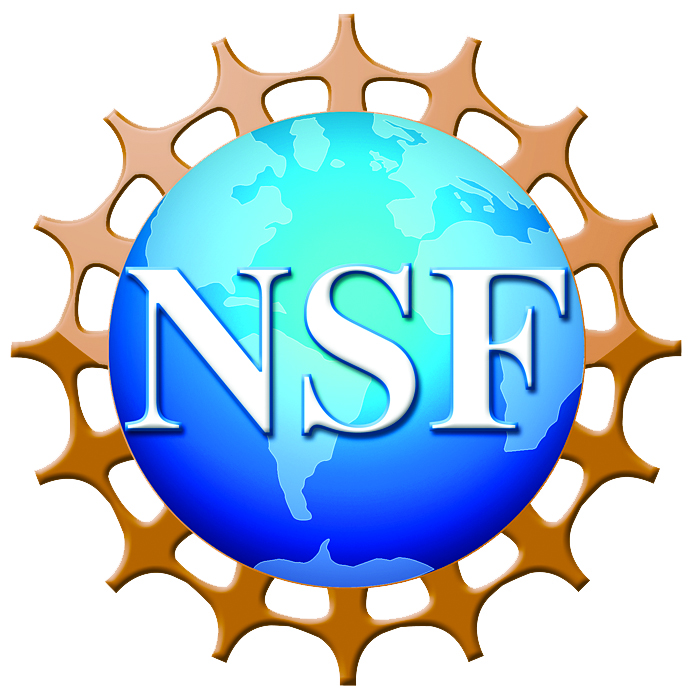
NSF Funding Opportunity: Future Manufacturing Program
 DUE DATES
DUE DATES
Letter of Intent Deadline: April 10, 2020
Full Proposal Deadline: June 5, 2020
PROGRAM GUIDELINES
Solicitation 20-552
Important Information for Proposers
A revised version of the NSF Proposal & Award Policies & Procedures Guide (PAPPG) (NSF 20-1), is effective for proposals submitted, or due, on or after June 1, 2020. Please be advised that, depending on the specified due date, the guidelines contained in NSF 20-1 may apply to proposals submitted in response to this funding opportunity.
This solicitation was obtained from the NSF website https://www.nsf.gov/funding/pgm_summ.jsp?pims_id=505737 on 3/9/2020 at 9:27 a.m. CDT and is reposted on www.okepscor.org in order to share program information with the broader research community. As program information may be updated by NSF after posting of this material, proposal submitters should visit the Official NSF site to obtain the most up-to-date information prior to proposal preparation and submission.
SYNOPSIS
As stated in the Strategy for American Leadership in Advanced Manufacturing, worldwide competition in manufacturing has been dominated in recent decades by the maturation, commoditization, and widespread application of computation in production equipment and logistics, effectively leveling the global technological playing field and putting a premium on low wages and incremental technical improvements.[1] The next generation of technological competition in manufacturing will be dictated by inventions of new materials, chemicals, devices, systems, processes, machines, design and work methods, social structures and business practices. Fundamental research will be required in robotics, artificial intelligence, biotechnology, materials science, sustainability, education and public policy, and workforce development to take the lead in this global competition. The research supported under this solicitation will enhance U.S. leadership in manufacturing far into the future by providing new capabilities for established companies and entrepreneurs, improving our health and quality of life, and reducing the impact of manufacturing industries on the environment.
The goal of this solicitation is to support fundamental research and education of a future workforce that will enable Future Manufacturing: manufacturing that either does not exist today or exists only at such small scales that it is not viable. Future Manufacturing will require the design and deployment of diverse new technologies for synthesis and sensing, and new algorithms for manufacturing new materials, chemicals, devices, components and systems. It will require new advances in artificial intelligence and machine learning, new cyberinfrastructure, new approaches for mathematical and computational modeling, new dynamics and control methodologies, new ways to integrate systems biology, synthetic biology and bioprocessing, and new ways to influence the economy, workforce, human behavior, and society.
Among this array of technologies and potential research subjects, three thrust areas have been identified for support in FY 2020 under this solicitation:
Future Cyber Manufacturing Research,
Future Eco Manufacturing Research, and
Future Biomanufacturing Research.
This solicitation seeks proposals to perform fundamental research to enable new manufacturing capabilities in one or more of these thrust areas.
This solicitation will support the following three award tracks:
Future Manufacturing Research Grants (FMRG) - Two types of awards will be supported in FY 2020:
Type I: $500,000 to $750,000 per year for up to five years,
Type II: $750,000 to $2,000,000 per year for up to five years;
Future Manufacturing Seed Grants (FMSG) - Awards in this track will provide support for up to two years at a level not to exceed $250,000 per year; and
Future Manufacturing Networks (FMNet) - Awards in this track will provide up to five years of support at a total amount of $500,000.
Interdisciplinary teams commensurate with the scope of the proposed research, education plan, and budget are required. Proposals must include demonstrated expertise among the team members to carry out the proposed research, education, and workforce development activities. The use of a convergence approach is expected[2].
The goal of this solicitation is to enable new manufacturing that represents a significant change from current practice. Therefore, proposers responding to this solicitation must include within the Project Description a section titled Enabling Future Manufacturing. Please see "Full Proposal Preparation Instructions" for additional details.
Realization of the benefits of the fundamental research supported under this solicitation will require the simultaneous education of a skilled technical workforce that can transition new discoveries into U.S. manufacturing companies. The National Science Board has recently emphasized this perspective in its report, "THE SKILLED TECHNICAL WORKFORCE: Crafting America's Science and Engineering Enterprise."[3] Therefore, proposers responding to this solicitation must include within the Project Description a section titled Education and Workforce Development Plan that describes plans to equip students and upskill the workforce to enable Future Manufacturing. Please see "Full Proposal Preparation Instructions" for additional details.
FURTHER INFORMATION: An informational webinar will be held on March 26, 2020 at 1:00 PM EST to discuss the Future Manufacturing program and answer questions about this solicitation. Details about how to join this webinar will be posted at https://www.nsf.gov/div/index.jsp?div=CMMI.
[1] https://www.whitehouse.gov/wp-content/uploads/2018/10/Advanced-Manufacturing-Strategic-Plan-2018.pdf
[2] https://www.nsf.gov/od/oia/convergence/index.jsp
[3] https://www.nsf.gov/nsb/publications/2019/nsb201923.pdf
- What Has Been Funded (Recent Awards Made Through This Program, with Abstracts)
- Map of Recent Awards Made Through This Program
General inquiries regarding this program should be made to [email protected].
Visit the Official Program Page for the most up-to-date solicitation information: https://www.nsf.gov/funding/pgm_summ.jsp?pims_id=505737
